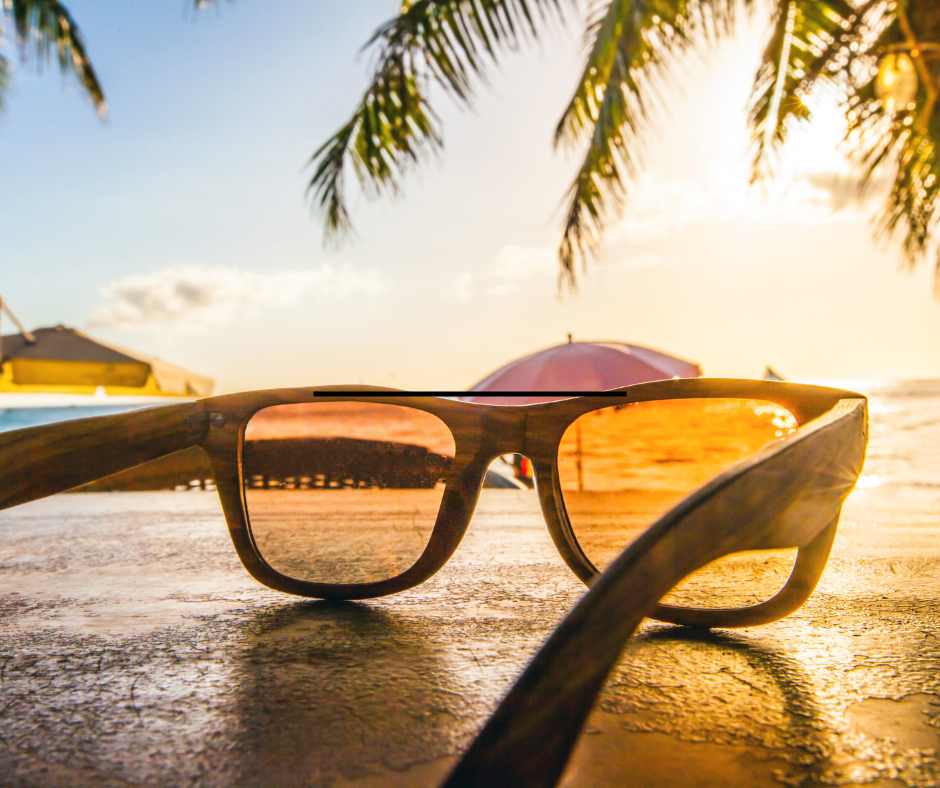
Top 6 Reasons Wearing Sunglasses Protects Your Eyes
Many of us wear sunglasses to reduce the glare of the sun when we are outside or driving. Others wear them as much for a fashion statement as for protection. But did you know that wearing the proper sunglasses protects your eyes and prevents or reduces the negative impact of UV rays from the sun? If you have ever wondered about the benefits of sunglasses on your health and wellbeing, here are six outstanding reasons to wear them – and to make sure you are wearing the proper lenses that filter UV rays.
- They protect your eyes from UV rays.
- Exposure to UV rays from the sun can cause significant damage to your eyes. We all know that light radiation is present on sunny days, but did you know it is also an issue when the sun isn’t shining? Even on cloudy days, 42% of radiation still reaches your eyes. UV rays are, in fact, more intense in winter – especially when it snows. Reflected light off the snow can increase the radiation by 80% (ever heard of “snow blindness?”). While we don’t have much snow on the Gulf Coast, we do have patients that go skiing in the winter!
- They protect you from skin cancer.
- Because the skin on our eyelids is thin and fragile, it is more likely to be susceptible to dryness and skin cancer. This is particularly true for children because their eyes are especially thin and fragile and absorb UV rays more easily. These areas of our skin are also rarely covered and protected from the sun, unless wearing sunglasses!
- They protect your eyes from developing abnormal growths
- Pterygium and pinguecula, also known as surfer’s eye, are growths of tissue that spread from the white of our eyes (conjunctiva) towards the optical center of our eyes on our cornea. These growths are caused by UV light damage to the surrounding tissues of the eye. It is called surfer’s eye because it is frequently seen in surfers since sunlight reflects off the surface of the water increasing exposure to UV light rays. Untreated, this condition can cause scarring and astigmatism in the cornea which leads to distorted images or vision loss.
- Sunglasses protect your eyes from macular degeneration.
- Macular degeneration causes central vision loss, and UV light can increase the risk of this condition. Many of the harmful UV light rays are filtered out through the cornea and natural lens of the eye, but there is some evidence suggesting that not all of these rays are completely filtered. This type of damage to the retina can increase the risk of developing macular degeneration.
- Photokeratitis is less likely when you protect your eyes.
- Photokeratitis is a technical name for “corneal burn.” This condition occurs from exposure to strong UV rays most commonly seen from a day at the beach or on ski slopes and causes blurred vision, light sensitivity and pain.
- Sunglasses protect your eyes from cataracts.
- Cataracts normally occur as people age. A cataract is defined by the lens of the eye becoming cloudy resulting in decreased visual clarity and potential blindness if untreated. Prolonged exposure to ultraviolet light can increase the rate of progression in younger people.
What kind of sunglasses should I wear?
You should look for lenses that:
- Block 99 to 100% of UVA and UVB rays
- Filter 75 to 90% of visible light
- Have frames that fit close to your eyes and cover the entire eye
- Contour to your face to prevent light exposure from all sides of your eyes
If you have questions about sunglasses, prescription sunglasses or LASIK to avoid the need for a prescription pair, contact us to schedule an appointment here.
